Polls have opened in Ireland, where voters are making history as the republic becomes the first nation to ask its electorate to legalise gay marriage.
More than 3m voters have been invited to cast ballots in Ireland’s 43 constituencies, with the result to follow on Saturday. Polling stations opened at 7am BST and they close at 10pm.
The voting follows a hard-fought and occasionally rancorous battle between conservative and liberal Ireland.
Though some 20 other countries worldwide have already legalised gay marriage, Ireland would be the first to do so through a referendum. The move would mark the culmination of an improbable journey in a country in which homosexual acts were still illegal as recently as 1993.
Ireland’s gay marriage referendum – the Guardian briefing
Read more
The Fine Gael-Labour government, alongside the main opposition parties, said they were confident that Ireland will vote yes today despite strong campaigning in the last few days by those opposed to same-sex marriage.
The government point to an extra 68,000 new people of voting age who have signed on to the electoral register within the last fortnight. The administration in Dublin sees this as a sign that younger voters will turn out in higher numbers than in previous referendums to back the yes side. In every opinion poll the yes camp has been ahead of the no side.
In his final live televised interview ahead of the polling stations opening, Ireland’s prime minister, Enda Kenny, urged voters to vote yes “for love and for equality”.
But the no campaign, comprised mainly of lay Catholic intellectuals, writers and activists, have warned that a yes vote will create a crisis of personal conscience in Ireland. An alliance of evangelical Catholics and Protestants have distributed more than 90,000 anti-gay marriage pamphlets over the last week across Ireland urging a no vote.
Paddy Monaghan, one of the co-ordinators of the alliance of 100 religious activists, issued a warning on the eve of the referendum.
Irish same-sex marriage referendum: the laws around the world
Read more
“We have warned in our pamphlet about the major implications on the issue of conscience if there is a yes vote on Friday. If there is a yes vote, will the Muslim printer in Ireland now be obliged to print cartoons of Muhammad? Redefining marriage is sold to us by the media and political establishment as a permissive measure but it will quickly become coercive,” Monaghan said.
Advertisement
In the last week of campaigning, the first female Anglican bishop in Ireland, England, Scotland or Wales, Pat Storey, has written to all her clergy in Meath and Kildare, explaining her reasons for voting no.
Focusing on fears stirred up by the no camp about children allegedly being forcibly adopted by gay couples, Bishop Storey said: “You cannot redefine marriage without including information and reference to children, family and the good of society. It is my view that, where possible, children benefit most from both genders parenting them. That is not to say that single parents who find themselves alone do not do an immensely great job in raising their children. Yet I believe that it is God’s intention that, where feasible, children should have a mother and father.”
Until this week the yes-no battle was coloured by accusations that opponents of gay marriage were misleading the public over claims about forced adoptions or same-sex couples having a supposed right to obtain children through surrogacy. The yes camp has pointed out that the commissioner overseeing the campaign has dismissed these claims and emphasised they were not connected to gay marriage.
In the last few days, the campaign has turned much uglier, with yes advocates revealing the amount of vitriolic abuse they have received. Irish Times writer Una Mullally tweeted a link to a letter she was sent which referred to her revelation during the campaign that she has cancer. The letter writer told her: “Sorry to hear about your cancer but maybe it is the will of God.”
#hometovote: Irish abroad return to vote in gay marriage referendum
Read more
Referring to Mullally’s going public about her illness, her sexuality and her support for the yes side, the letter writer continued: “After all you have been relentlessly pushing the twisted idea of gay marriage which would destroy the family as we know it and ruin the lives of generations of innocent children victimised by the narcissism of their ‘parents’.”
Mullally’s correspondent ended the letter with further personalised, racially tinged abuse directed at her and her partner: “My advice is to accept that you are both homosexual and not very pretty, as there are far worse fates; you might be black for instance.”
Meanwhile, Colm O’Gorman, the current executive director of Amnesty International Ireland, prominent yes campaigner and survivor of clerical child sex abuse, disclosed on Thursday that a no voter tweeted him a picture of a gay man being thrown to his death off a building by Islamic State extremists. O’Gorman said the image was vile.
Currently 17 countries, including Spain, France, Argentina and Denmark along with several states in the US, allow same-sex couples to marry, and two others have passed legislation paving the way for legalisation.
Ireland, however, is unique because it is the only nation to ask its electorate to endorse gay marriage in a plebiscite. The result will be known on Saturday afternoon.
he United States Geological Survey (USGS), which monitors earthquakes across the world, said on Wednesday that while the chances of future aftershocks in Nepal were lower than its previous forecast, strong tremors could be felt in the Himalayan nation in the next week.
“The aftershocks are a normal occurrence after large earthquakes, and are expected to continue in Nepal but occur less often with time. The probability of future aftershocks is lower than in our forecast of May 13 due to the additional time that has passed since magnitude 7.3 earthquake on May 12, 2015, which was itself an aftershock of the Gorkha mainshock,” the USGS said in an advisory released on Wednesday.
“Within the week of May 20 to May 26, the USGS estimates that the chance of at least one magnitude 5 to 6 aftershock is about 40% and up to 3 such events are likely to occur,” it said.
Two mild tremors were felt on Tuesday in Kathmandu and surrounding areas affected by the April 25 earthquake that killed nearly 9,000 people in Nepal. The temblor also hit parts of northern India, killing more than 60 people across Uttar, Bihar and West Bengal.
A second powerful earthquake in less than three weeks spread panic in Nepal on May 12, bringing down buildings weakened by the first disaster and killing at least 66 people, including 17 in neighbouring India and one in Chinese Tibet.
Most of the reported fatalities were in villages and towns east of Kathmandu, only just beginning to pick up the pieces from the April 25 quake.
A total of 248 aftershocks of over 4-magnitude have been recorded since the 7.8-magnitude earthquake hit Nepal.
“Aftershocks have the potential to create damage, just like other earthquakes… Some aftershocks may be strong enough to be felt widely throughout the area and may cause additional damage, particularly to vulnerable structures and those already weakened by the mainshock and the aftershocks,” the USGS said.
More than 600 temples, statues and museums across the country were damaged in Nepal’s deadliest earthquake on record, including Kathmandu’s 200-foot Dharahara Tower, built in 1832, which collapsed.
The little-seen older brother of the North Korean leader, Kim Jong-un, has surfaced in London, according to a series of reports, attending concerts by Eric Clapton at the Royal Albert Hall.
A man identified as Kim Jong-chul was filmed by Japanese TV crews at the guitarist’s concert on Thursday evening.
Broadcaster TBS filmed Kim, wearing dark sunglasses and clad in a leather jacket, getting out of a people carrier outside the central London venue, flanked by suited men who appeared to be North Korean officials.
More TBS footage shows the 33-year-old applauding in the crowd and then leaving the venue via a corridor. “How was the concert?” asked the TBS reporter, in response to which one of Kim’s entourage places a hand over the camera lens.
The NK News website cited an anonymous source who also filmed Kim’s exit as confirming the man was brother of North Korea’s leader. According to this source, the older Kim saw Clapton play on both Wednesday and Thursday, sitting near the stage.
“He wasn’t so distinctive,” NK News quoted the source as saying. “But the obviously older guy next to him was clearly neither a typical Clapton fan or dressed for a gig.”
According to NK News, Japanese and South Korean media learned of Kim’s appearance at the Wednesday concert and so arrived in force the next day.
He is the middle of the three sons of North Korea’s late leader, Kim Jong-il, who died in 2011. The eldest of the trio, Kim Jong-nam, 44, who has a different mother to the other siblings, was seen as most likely to succeed as leader before an incident in 2001 when he tried to enter Japan on a false passport, supposedly to visit Disneyland.
While Kim Jong-chul has previously held some mid-level official positions, he has kept a low profile under the rule of his younger brother.
North Korea is officially run on a highly nationalistic and insular philosophy of self-reliance, known as juche. But top-ranking citizens have previously shown a taste for foreign culture. Kim Jong-il was well know for his love of foreign cuisine and US cinema, while his youngest son is a basketball fan who has repeatedly met former NBA star Dennis Rodman.
According to the Financial Times in 2008, North Korea had formally invited Clapton to play in the country. The overtures reportedly followed a concert in Pyongyang by the New York Philharmonic.
New Delhi, May 22 (PTI) Settlement of the border issue is “critical” for India-China ties, National Security Advisor Ajit Doval said today, as he called for a “larger plan” for “tackling” that country to resolve all ticklish matters.
Doval also said that while India’s relations with China “are looking up” there was a need to remain at a “very very high alert”.
Delivering the annual K F Rustamji lecture, Doval, who leads the Indian side at the talks of Special Representatives with China, also dwelt on China’s emergence as world’s economic power and its relations with Pakistan.
The event is organised by the BSF in memory of Rustamji, the founder Director General of of the force who retired in late 1960’s but was reemployed as first Special Secretary in Ministry of Home Affairs. He is the only police officer who has been awarded Padma Vibushan, the country’s second highest civilian award.
Doval, a former Intelligence Bureau Chief, said “…we might have to see China border in a different way once the boundary is settled….
“We have got a very long border we have got 3,488-km long border, a very difficult and mountainous terrain snow-clad…
now for the bilateral relations with China, border is the critical and vital issue,” he said speaking on the topic ‘Challenges of Securing India?s Borders; Strategising the Response?.
He said all advancement made in the “relationship” with China gets centred around and becomes important on settlement of the border.
Doval said while the bilateral relations with China “are looking up” there was a need to remain at a “very very high alert”.
“We are particularly concerned about the Eastern sector where the claims have been made on Tawang(in Arunachal Pradesh) which is totally in contravention of accepted principles,” Doval said and expressed surprise that while McMahon line was agreed till Burma by China, the same was not accepted thereafter.
The line is named after Sir Henry McMahon, foreign secretary of the British-run Government of India and the chief negotiator of settling disputes with China in 1914.
“The fact is there is settled population in these areas particularly in Tawang and other areas which have been participating in the national mainstream all through.
“So, these are the ticklish issues. But these ticklish issues have to be talked about, deliberated and worked out, he said, adding there was a need for working out a “larger plan for tackling China”.
The comments by Doval came days after Prime Minister Narendra Modi during his visit to China asked Beijing to “reconsider its approach on some issues that hold us back”, an apparent reference to the long-pending boundary issue.
Hisar, May 22 (PTI) Police today claimed to have arrested one person along with his brother for allegedly killing his 20-year-old daughter here at Dhana Kalan village.
Sonia, a student of BA Final year, had allegedly eloped with her boyfriend of same village on May 9.
However, both were found by police two days later from Gurgaon railway station on the basis of complaint filed by girl’s father Ravi Dutt.
Sonia was handed over to the family by the police, they said.
However, she died under mysterious circumstances on May 19 and her family cremated the body next day without conducting postmortem, police said.
After learning about the girl’s death, police lodged a case against girl’s father Ravi Dutt, his brother Krishan Saini and another relative Rajender under sections 302 (murder) and 201 (causing disappearance of evidence of an offence committed) and other sections of the IPC against them.
Ravi Dutt and Krishan Saini were arrested, police said, further investigation is underway
Alleged Islamic State recruit Areeb Majeed has told the National Investigation Agency (NIA) that one of the reasons why he returned to India was the “un-Islamic” activities of the IS such as “treating men and women as sex slaves”. He has also said “Indians are sidelined… treated as second-class citizens” by the IS.
This statement forms part of an over 8,000-page chargesheet filed Wednesday by the NIA against Majeed and his three wanted friends. Majeed has been charged under sections of the Unlawful Activities (Prevention) Act and Section 125 of the Indian Penal Code.
The four young men from Kalyan — Areeb Majeed, Fahad Shaikh, Amaan Tandel and Saheem Tanki — left their homes and went to fight for the IS in Iraq and Syria in May 2014.
Unlike what we saw in the videos on the Internet and what we were preached by our handlers, the IS is into un-Islamic activities in Iraq. They treat men and women as sex slaves. I was appalled by what I saw. Women are relegated as sex objects. This disillusioned me and I decided to return to India,” Majeed said in his statement. “The IS claims they are fighting under the Caliphate, but the ground realities are completely different,” he said.
The other reason for his return, Majeed said, is the “blatant discrimination” shown by the banned outfit towards jihadis from India. “While the Arabs are treated as the real fighters, the Indians are sidelined. They are treated as second-class citizens. They are never considered good enough to fight the real war and relegated as support staff. Indians are never put on the front line,” he said.
Majeed said that in September, when he was based in Raqqa after completing basic training, he volunteered to drive an explosives-laden vehicle behind enemy lines, but was disappointed when the IS cancelled the plan at the last minute. He said he suspected this was done because he was Indian.
He claimed he was hit by bullets and was once injured in a bombing, but did not receive any medical attention. “When I was treating myself for the injuries in Raqqa, which I sustained during the bombing, I realised there was no point being here. I got further dissuaded by the manner in which the IS operated in Iraq,” he said.
Majeed said that in September, he called his family in India. He said his mother started weeping when she heard his voice since they had already given him up for dead and had performed the ghaibana namaz-e-janaza (funeral prayer in absentia) after they got a call from Tanki in August, informing them that Majeed had been killed in a bombing. After learning that Areeb was alive, his family insisted that he return. The family pressure, coupled with his disillusionment with the IS, made him return, he said.
The chargesheet also details Majeed’s indoctrination and his six-month stay in Iraq. According to the chargesheet, Majeed was primarily indoctrinated about the IS over the Internet. A few Indians and foreign nationals also brainwashed him and his three friends, it says. “Areeb used his Samsung Note 1 to browse the Internet and download jihadi literature,” the chargesheet says. The NIA has attached 87 documents and 46 articles, including Call Data Records, to the chargesheet
The chargseheet claims it was local preacher Adil Dolaris, also from Kalyan, who introduced Majeed to an Afghan national named Rehman Daulati and an alleged Iraqi militant Ahmed Rateb Hussein Zade. Daulati, who had obtained an engineering degree from Navi Mumbai, moved to Afghanistan in 2014. He got in touch with the four youth in 2013. He was also the one who partly financed their trip to Iraq. “The cost of the trip was Rs 2.39 lakh, Dalauti contributed around Rs 1.5 lakh,” the chargesheet states. “Despite shifting to Afghanistan, Daulati intermittently travelled to India. When the youth expressed their desire to travel to Iraq, Daulati promised to help them,” it says.
Other than Daulati, the four also established contact with an alleged IS operative identified as Abu Fatima, who instructed them that on their arrival in Baghdad, they should all stand outside a particular mosque in Mosul. On May 30, the four took a cab to the mosque and stood outside. From there, they called Dalauti and Fatima. Fatima then directed another alleged IS operative identified as Ali to take them for training.
Majeed also claimed that Fahad operated the suspended Twitter handle @magnetgas. The account was created in India and later operated by him in Iraq. It was primarily used to follow IS activities, especially concerning Indian jihadis. After receiving basic combat training, the four were christened Abu Ali Al Hindi (Areeb), Abu Utman Al Hindi (Saleem), Abu Bakar Al Hindi (Fahad) and Abu Umar Al Hindi (Aman) . The ‘Al Hindi’ suffix is used by the IS to identify Indian jihadis.
Human traffickers are exploiting the devastation in Nepal caused by the massive earthquake by luring girls and women in to sex trade. As Nepal is trying to revive from the nation’s biggest disaster, thousands of poor girls and women have become vulnerable to human trafficking.
Anti-trafficker said that there is a need for greater attention to protect girls and women as many people in Nepal are still without shelter and possession. There are fears that human traffickers will target the camps for the displaced by the earthquake, which caused nearly 8000 deaths
Women and girls have long been targeted in the Himalayan region and the UN estimates that around 15000 girls are trafficked abroad, mainly to India and South Korea.
A brothel manager said that there is a huge demand for girls from Nepal in the brothels of Mumbai, and it’s because they are fair-skinned and not dark like Indians. One-quarter of Mumbai’s 70,000 prostitutes are from Nepal.
Paris/London, May 21 (PTI) India has the lowest income inequality among all emerging economies, but it is much higher than most of the advanced economies, OECD said today.
The countries with higher income gap than India include Russia, China, Brazil, Indonesia and South Africa — which have recorded the highest income inequality among all developed and emerging economies studied by the Organisation for Economic Cooperation and Development (OECD).
Paris-based OECD, a grouping of the world’s 34 major economies, said the rich-poor gap in most advanced economies has risen to highest levels in past three decades, while it continues to remain much higher in many emerging economies.
Among both developed and emerging countries, the gap was found to be highest in South Africa and lowest in Denmark.
India had the lowest income gap, of the nine emerging economies studied by OECD, followed by Russia, Indonesia, Argentina, China, Latvia, Brazil, Columbia and South Africa.
For OECD countries, the income gap was highest in Chile, Mexico, Turkey, the US and Israel. The countries with lowest inequality are Denmark, Slovenia, Slovak Republic and Norway.
Talking about India, OECD said that the direct job creation schemes can serve as a useful back stop to ensure that the long-term unemployed and other disadvantaged groups maintain a contact with the labour market.
“India has one of the largest public works programme in the world in terms of coverage ? the National Rural Employment Guarantee Scheme (NREGA) ? which plays an important role in reducing short-term poverty and smooth employment and income throughout the year for rural labourers.
“The programme however remains little used, mainly in poorer states because of lack of funding and weak implementation capacity,” it added.
OECD said that the richest 10 per cent of OECD population now earn 9.6 times the income of the poorest 10 per cent. This ratio was seven-times in 1980s and nine-times in 2000s.
As per the study, wealth is now even more concentrated at the top level, exacerbating the overall disadvantage of low-income households.
In 2012, the bottom 40 per cent owned only 3 per cent of total household wealth. In contrast, the top 10 per cent controlled half of all total household wealth and the wealthiest 1 per cent owned 18 per cent.
“We have reached a tipping point. Inequality in OECD countries is at its highest since records began,” OECD Secretary-General Angel Gurria said.
“The evidence shows that high inequality is bad for growth. The case for policy action is as much economic as social. By not addressing inequality, governments are cutting into the social fabric of their countries and hurting their long-term economic growth,” he added.
It also called for more steps to reduce the gender gap.
“If the proportion of households with working women had remained at levels of 20 to 25 years ago, income inequality would have increased (further)…” it said.
New Delhi, May 21 (PTI) The Delhi High Court today stayed the trial court proceedings against MNS chief Raj Thackeray in various cases lodged against him for allegedly making anti-Bihari remarks in 2008.
“The proceedings before the trial court are stayed,” a bench of Justice Sunil Gaur said, adding that “it seems” none of the complainants, on whose complaints trial court had summoned Maharashtra Navnirman Sena (MNS) chief Thackeray, are serious about pursuing the matter.
It also observed that none appeared in the case listed before this court.
Earlier, the court on February 12 had issued notice to the respondents– eight persons who have filed separate complaints against Thackeray, and had sought their reply on the plea of the MNS chief.
Thackeray has moved the High Court seeking stay on the proceedings before a trial court and quashing of the criminal complaints against him for allegedly making inflammatory remarks.
Senior advocate Arvind Nigam, appearing for Thackeray, contended before the court that in absence of the sanction the proceedings before the trial court is unwarranted.
Earlier on January 30, 2013, the court had stayed execution of the non-bailable warrants (NBWs) and tagged the matter with several other similar petitions moved by the MNS chief. All these matters will now come up for hearing on October 12.
As per Thackeray’s plea, complaints were filed against him in various places including Delhi, Jharkhand and Bihar in 2008 under sections 153A (promoting enmity between classes), 153B (assertions prejudicial to national integration), 295A (maliciously insulting religion of any class), 500(defamation) and 504 (insult intended to provoke breach of peace) of IPC.
London, May 21 (PTI)?The UK Foreign Office is looking into the mysterious disappearance of a British-Indian hotelier who went missing while on a business trip to Punjab.
Ranjit Singh Power’s family in Britain fears he may have been kidnapped after he uncharacteristically failed to stay in contact with them and did not catch his return flight from Amritsar on May 14.
The 54-year-old owns the four-star Ramada Park Hall Hotel in Wolverhampton, in the West Midlands region of England, and is in the habit of ringing his family every day.
But this time, he last spoke to his partner, Angela Bir, on May 7 when he landed in India.
“We are getting more and more distraught. Our fears are he may have been kidnapped or even worse,” his daughter Emma told the ‘Express & Star’ newspaper.
“Father would contact England two or three times a day if not more. We have not heard from him at all. He is very careful and has always been aware of his security,” the 26-year-old said.
Power, who grew up in the West Midlands,?has now been placed on the West Midlands Police’s Missing Persons list as the Foreign Office joins the investigation.
“A British national was reported missing in India on May 14. We are providing consular assistance to the family and liaising closely with local authorities,” a spokesperson said.
A West Midlands Police spokesperson confirmed Power is on the Missing Persons list and urged anyone with information to call 101.
Power, a wealthy businessman, bought the Ramada Park Hall Hotel out of administration four years ago from its previous owners. He previously owned the Connaught Hotel in Wolverhampton before selling it in 2004.

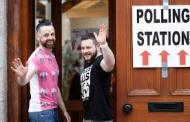
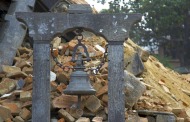

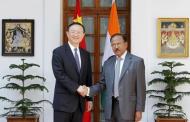

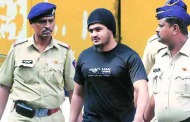

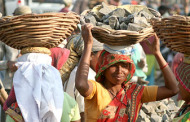
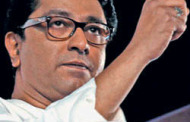
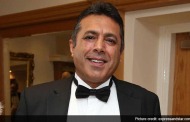





Recent Comments